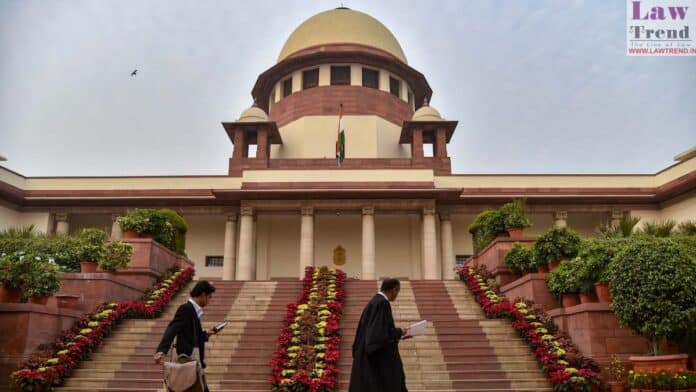The Centre on Thursday disputed in the Supreme Court the figure pertaining to alleged attacks on Christian institutions and priests, terming the data “wrong” and claiming the petitioners wanted to keep “the pot boiling” to sully the image of the country abroad.
The top court was hearing a PIL filed by Rev. Peter Machado of the National Solidarity Forum, Rev. Vijayesh Lal of Evangelical Fellowship of India, and others claiming violence against members of the Christian community.
A bench headed by Chief Justice D Y Chandrachud was earlier told by the PIL petitioners that from 2021 to May 2022, 700 cases of violence against members of the Christian community were reported and a majority of those arrested were followers of the faith.
Solicitor General Tushar Mehta, appearing for the Centre, referred to a report containing the case data received from states like Bihar and Chhattisgarh and said most of them related to disputes involving neighbours and, coincidentally, one of the parties happened to be a Christian.
He said the bench, also including Justices P S Narasimha and J B Pardiwala, had taken note of the matter based on the figures provided by the PIL petitioners which were wrong.
“The petitioner claimed that there are some 500 incidents where Christians were attacked. We sent everything to the state governments. We collated all the information we got. First let us see Bihar. The total number of cases, which petitioners gave, is related to internal fights between neighbours where one of the parties happens to be a Christian.
“The figure given by them, which obviously persuaded your lordships, was not correct,” the government’s law officer said.
At the outset, he said, the union ministry of home affairs has collated the responses from all the states.
Altogether 38 such incidents were reported from Bihar, and as per the report, they pertained to fights between two neighbours of whom one happened to be a Christian.
Claiming that the petitioners wanted to keep the “pot boiling”, Mehta said such judicial proceedings being pursued by them will send out a wrong message to the public at large.
“This is how it is being displayed outside the country. This is the message that goes out to the public that Christians are in danger and are being attacked. This is wrong,” the top law officer said.
“Wherever there is a grave offence and arrests had to be made… arrests have been made,” he said, asserting the numbers submitted by the petitioners were incorrect.
He said 64 arrests were made in Chhattisgarh alone where the state has created a helpline for reporting such incidents.
The petition said 495 attacks took place on Christians and their institutions in Chhattisgarh, but the report says they never happened, the law officer asserted.
The court took note of the report filed by the Centre and granted three weeks to the petitioners to respond to it after senior advocate Colin Gonsalves, appearing for them, said he received the government’s affidavit late last night.
Earlier, the bench had directed the Centre to file a report on alleged attacks on Christian institutions and priests across the country as well as on the implementation of its earlier guidelines to curb hate crimes.
Prior to this, it had said there was a need to separate the “grain from the chaff” and asked the MHA to seek reports from Uttar Pradesh, Madhya Pradesh, Haryana, Karnataka, Odisha, Chhattisgarh, Bihar and Jharkhand on alleged attacks on members of the Christian community.
The top court had said though it believes crime against an individual does not necessarily mean crime against society, even if 10 per cent of the cases alleged in the PIL is true it needs to go to the bottom of the issue.
The Centre told the court it should not entertain the PIL based on “self-serving reports” as it could have wider ramifications.
The Central government had contended 162 of the cases mentioned in the PIL have been found to be fake on verification at the ground level.
The PIL has claimed that in May, 2022 alone 57 cases of violence and attacks on Christian institutions and priests took place, and sought implementation of the guidelines issued by the apex court in the Tehseen Poonawala judgement under which nodal officers were to be appointed to take note of hate crimes and register FIRs.
In 2018, the apex court had come out with a slew of guidelines for the Centre and the states to tackle such crimes including fast-track trials, victim compensation, deterrent punishment, and disciplinary action against lax law enforcement officials.




